It is always a good time to offer a general perspective on the extensive bibliography of this academic of the language, capable of combining the most exquisite language with the most exciting action, a great way to enrich language and entertain manifested throughout the entire work of Don Arturo Pérez Reverte. Maybe other authors should learn ...
Because one of the most notable values of a writer is, for me, versatility. When an author is able to undertake very different types of creations, he demonstrates a capacity for self-improvement, a need to search for new horizons and a dedication to creative genius, without further conditioning.
- Works by Arturo Pérez-Reverte in chronological order
- The husar
- Fencing master
- The flanders table
- The Dumas club
- The shadow of the eagle
- Comanche territory
- Drum skin
- The spherical letter
- Queen of the south
- Cape Trafalgar
- The painter of battles
- A day of anger
- The siege
- The tango of the old guard
- The patient sniper
- Good men
- The Adventures of Captain Alatriste
- Falco
- Eva
- Tough dogs don't dance
- Sabotage
- A history of Spain
- Sidi
- Cyclops cave
- Fire line
- The Italian
- Revolution: A Novel
- The final problem
- frequently asked questions about arturo perez reverte
We all know the public demonstrations of Arturo Pérez Reverte via XL Semanal or on social networks and almost never leaves you indifferent. Undoubtedly, this way of not sticking to what is established already makes clear his tendency to write just for the sake of it, as a free trade, without commercial imperative (although in the end he sells books like the most).
Going into detailing his prolific writing career may sound pretentious. But that is what it takes to be a free reader. I can comment because yes, so I will dare to review all the books of Arturo Pérez Reverte, that make up a long career of, without a doubt, one of the best Spanish writers of today.
If we go back to the beginning, we find that the first novels by Arturo Pérez Reverte They were already anticipating the subsequent soap operas that he had in store for us. But we go one by one in chronological order. Welcome to the Reverte universe, at least in terms of novels:
Works by Arturo Pérez-Reverte in chronological order
The husar
His debut feature, Hussar, focused on the nineteenth century. Although the plot went into the corresponding historical period, with the warlike ups and downs at the beginning of the Spanish War of Independence, the novel also contains a residue for reflection on any conflict.
The characters in this novel bring ideas and grim perspectives on the war, something very appropriate for a war correspondent who was new to literary fiction. We must not forget his more than 20 years as a special envoy to different conflicts. Two decades dedicated to the mission of narrating the horrors of different armed conflicts throughout the world.
Fencing master
Fencing master it was his second novel, published in 1988. To be his second title, it was already a bestseller; still evoked today as a great work of mystery and that I rescue here in its reissue of April 2017.
In addition to representing Spain at the end of the XNUMXth century in a precise and precious way, an exciting intrigue makes its way in this work. The life of Don Jaime, the fencing master takes unpredictable courses with the appearance of an enigmatic woman who seeks to indoctrinate herself in the execution of Don Jaime's own lunge.
Coincidence or not, in parallel, Don Jaime becomes the depositary of some documents of a marquis who trusts him to safeguard some important information. With the sum of these two "coincidences" the plot is triggered ...
The flanders table
What to say about The flanders table? Two years after breaking in with The fencing master, the author repeated formula with as much success or more than in its named predecessor.
Always with the horizon of an elegant style in the forms and animated in the background, the author enters a new work of mystery that already almost borders on the thriller. Art, chess and history, a fascinating combination to pose riddles of the past that Julia, a young restorer tries to decipher.
A novel in which it is stimulating to delve into the sophistication of its plot, feeling like a participant in that degree of erudition and knowledge, while enjoying a rhythm that never wanes. A rhythmic rhythm by its characters, impelled towards historical discoveries of gigantic dimensions.
The Dumas club
The Dumas club It is a tribute to the great writer Alexandre Dumas, a reference for the author himself and more than a possible mirror in which to develop style, elegance, the depth of the characters and that very commercial point of literature achieved through passionate knots and endings.
In this novel, Arturo Pérez Reverte enters a world of bibliophiles, where we learn about the value of originals, first editions or possible manuscripts of great works by Alexandre Dumas and other authors.
The story is infused with a nineteenth-century touch, with the scent of old paper and pen ink. The set is filled with an esoteric point of the interesting enigmas to unravel, especially that concerning a lurid book: The nine gates of the kingdom of the shadows.
The shadow of the eagle
The shadow of the eagle It is not one of the most recognized works by Árturo Pérez Reverte, but for me it continues to be an interesting war novel about real events that occurred during the Napoleonic invasion of Russian lands: the battle of Berézina.
In that contest, Spanish prisoners participated on the French side who, given the disastrous evolution of the confrontation, did not hesitate to change sides when they painted clubs.
The author plays half-light between reality and fiction, sticking to the results and the ultimate truth of the undeniable historical facts but transforming his development to form a suggestive story not without irony and to a certain extent parody of the values on the front lines. .
Comanche territory
Comanche territory It meant an important break with the fiction theme tackled up to that moment by the author. In the work a progressive elaboration is detected, a leisurely maceration, because in his pages the author opened himself to the world in the facet and performance of him as a war correspondent. Because the work contains points of fiction, or at least of subjectivity, but always steeped in realism. How to forget that Arturo Pérez Reverte hidden in a trench in the middle of a fight? How was he not going to leave part of his experiences in a work like this?
Writing about the rawness of armed conflict should not be easy. In this book the language gets dark at times. It is as if it exposes everything that was left to be said beyond the recordings for official televisions.
Drum skin
Drum skin he returned to recover the historian Reverte, the rigorous but highly creative writer, the narrator of intrahistories and the creator of enigmas and fascinating mysteries.
The multifaceted writer was returning to his honorary place in literature. And in terms of plot and characters, the truth is that he did it through the front door. The construction of this novel would be worthy of Ken Follet, a cosmos of characters and branches that converge in a fascinating intrigue.
In this novel the author unleashed his creativity, his ingenuity and his already vast domain of literary creation to make today and yesterday compatible. From computing to the nineteenth century, to integrate characters of all kinds and to always maintain a thread in which every reader ends up entangled.
The spherical letter
Arturo Pérez Reverte, if he were John Smith Westinghouse, would reach (if he has not already reached) the level of the largest world bestsellers, at the height of leaflet, Brown o King, only in the case of the first two, with more luster in the shape and more sediment in the bottom.
It is puzzling how this author is able to find new plots to pull from to create new and vibrant stories like this one from The spherical letter. The shipwreck in the seas of half the world is a curious subject, treasure hunters are still probing the depths of seas and oceans.
And that is what this novel is about, the Mediterranean as an improvised executor of invaluable naval testimonies of enormous historical significance.
Queen of the south
Queen of the south It shows Reverte's literary interest in these "different" women. In a world that still seeks the equalization of men and women in the highest levels of command, thinking about mafias or black markets where a woman can be the one who runs everything is shocking, raising the worth of that woman far above that of any man.
Let's say that's the perspective from a reading point of view as a criminal adventure. But of course, underneath a plot focused on smuggling, the fetid smell of corruption, death and conflicts of all kinds emerges. Teresa Mendoza, the true queen of the south, would be delighted to discover herself in this exciting fiction about her life and work.
Cape Trafalgar
Cape Trafalgar for Arturo Pérez Reverte it was the award of the Cross for naval merit, which shows the significance and recognition of the work. With the background of his novel
The spherical letter, the author already had enough baggage to undertake another great naval-themed story. We are in the middle of the battle of Trafalgar, the Spanish ship Antilles he is preparing to face the naval combat par excellence of all history.
To get into the historical event, Reverte makes sure that we empathize perfectly through an incredibly varied, vulgar or technical language, but always extremely appropriate to make us live each scene in our skin.
The painter of battles
The painter of battles presents us with a brilliant evocation of the war in the Balkans. If in the case of Comanche Territory the scenes took on a journalistic touch, in this story the knot moves through the terrain of experiences, of what a personal war entails, particularly in the case of a photographer and a combatant but perfectly extrapolated to any soldier, civilian or victim of that conflict or of any other.
But beyond the transcendent, the story also brings a thriller point. The visit of Ivo Markovic, one of the characters photographed by Faulques, takes sinister channels through which death is anticipated as a revenge that is permeated with memories and pending accounts.
A day of anger
In every war there is a particularly virulent day, a hellish encounter in which humans indulge in blood without contemplation. A day of anger focuses on May 2, 1808 in Madrid. The famous charge of the Mamelukes that Goya painted in such a creepy way. It was about that, a day of widespread anger like an infernal disease.
In this book Reverte takes historical documentation into great consideration, rigorously staying true to the facts. But the real thing happened below what was registered. The little fictionalized stories serve as a sample of the horrors, that day when the people rose up against the Napoleonic invasion.
The siege
The siege It is one of the most extensive works of the author. The collection of documentation and knowledge about the Spanish War of Independence ended up spilling into this work, at least in terms of the necessary setting in Cádiz between the years 1811 and 1812. Otherwise, what moves the plot is the evolution of various characters occasionally intertwined, a spectacular interrelation worthy of Ken Follet's most elaborate plot.
But in addition Reverte achieves different tones in the work, moments in which the life adventure of the characters slides towards the detective genre or turns with a slight folletin disc tone or drifts towards a scientific branch, all with a consistent and truly dazzling knot .
The tango of the old guard
With The tango of the old guard, Arturo Pérez Reverte introduces us to a love story. It is curious that after so many stories with a warlike background he suddenly launched himself with a romantic novel. But logically it is not only about that.
The real reason to talk about love is to limit it to different historical moments. Max Costa and Mecha lead us, through their singular love, through melancholy, through the sensation of the lost and, of course, some of the transcendent war conflicts of the XNUMXth century.
In the end, in the inspiring 60s, the lovers face a disturbing game of chess. An interesting and groundbreaking novel that, for being different, has been filled with blessings and great consideration. It may be so. For tastes, colors.
The patient sniper
The patient sniper it sounds sinister in itself. That patience that a man who is preparing to kill can have, anticipates a new work on unfathomable aspects of the human being. And yet the course of the plot progresses not quite in this sense.
The aforementioned sniper is a controversial type, called Sniper, a kind of anonymous with a particular form of artistic manifestation. Alejandra Varela, a journalist, is on her trail. She wants to get to him before anyone else, find his motives and put a face on him. But to get to Sniper there is an entire underworld to go through, the one that has been created in our current societies. A dynamic plot, of great intrigue but with a clear social intention.
Good men
Good men they were those who sought to bring light to a shadowy Spain. It is clear that, as an academic at the Royal Academy of Language, Pérez Reverte discovered the real history of Hermógenes Molina and Don Pedro Zárate, both of whom were sent by the Academy to obtain The Encyclopedia of Diderot and D'Alembert.
The XNUMXth century was coming to an end and the academics of the time understood that this great work, the Reasoned Dictionary of the Sciences, the Arts and the Trades, could have an illustrative and transformative effect on a Spanish society delivered to the gloom of thought and culture. reason under the auspices of Catholic morality.
The course of the trip between Spain and France reflects the contrast between southern Europe and the thriving northern Europe, but while we share those parallel historical realities, we enjoy a magnificent adventure, with those close characters, with their precise language to the time and the story of his impressions and experiences on a journey towards the light.
The Adventures of Captain Alatriste
The Adventures of Captain Alatriste They are composed of 7 volumes of perfectly independent reading, although the most complete profile of the characters is achieved with a complete reading, thus achieving a very particular enjoyment, a kind of premonition about what can be expected from each scene experienced by the mythical captain.
Captain Alatriste is already a character with capital letters in Hispanic literature. Each of the 7 novels that this character raves through are a wonderful adventure in the middle of the Spanish Golden Age.
The brilliance of those years when Spain was still a world beacon also hid its shadows and miseries, its insults and its conflicts. Alatriste represents the noble of soul, not of title, the cultivated and courageous man, with a great sense of honor and a sword ready for punishment.
In the volume that you can discover by clicking on the image, a set of the seven novels is presented. Without a doubt, a unique gift that young and old can enjoy. Fun and learning with a lavish language.
Falco
Falco. What is billed as a prolific series will soon have its second installment: Eva. What we discover in this new Reverte character is a kind of Alatriste antagonist brought back in the middle of the XNUMXth century. Falcó is an antihero, a spy for hire, something very well brought for these times.
A character who moves in imprecise borders of morality but with a great reputation in those dark worlds that serve as a gear for things to simply work. The stage of the 30s and 40s, with so many past, current or pending conflicts, represents a turbulent phase of history in which only someone like Falcó knows how to make a place for himself and survive everything.
Eva
Eve. Lorenzo Falcó is already another of those star characters that Arturo Pérez Reverte has successfully built for Hispanic literature. Of course, this wicked, cynical and opportunistic guy has nothing to do with the glorious Alatriste, but he is the sign of the times. The hero gives up the baton to the antihero as the absolute protagonist. It must be a matter of fed up with the vision of a triumphant evil, roaming at ease in an anesthetized society.
On this occasion, we are in March 1937. Lorenzo Falcó continues to act in the shadows, under the directives of the rebels, in that dark task so necessary to change the course of the war, if necessary. In war and in love anything goes, a phrase that seems coined for this dark character, who seems to have it internalized to be able to act unscrupulously in those shadows of espionage, conspiracies and contacts with the devil himself.
Displaced to Tangier, Lorenzo Falcó has the mission of striking a blow to the Spanish ruling party that leaves him economically destitute, weakened and without any credit with the rest of the world. A dirty job that will result in poverty, misery and famine for the people. A performance that is necessary to be carried out from that ignominious space that our character occupies, so that that people for which they supposedly fought with nobility, do not know of such dirty tricks.
In front of Lorenzo Eva emerges, a harmless-looking woman who dazzles Falcó but also participates in that dirty war, only on the opposite side. Depending on the context, loving or hating is just a matter of focus, being able to move from one place to another as needed. But it is no less true that in the comings and goings between antagonistic sensations one ends up leaving shreds of the soul, undressing before a reality that can lead you to rethink your place in the world.
Accustomed to the exquisite documentation of this author, among which he slides fast-paced stories that captivate us by their lively rhythm, their emotional intensity and by that perfect fit with the reality that surrounds the characters, we once again find that pure mastery, that of a pen already used to reaching the highest levels of success.
Tough dogs don't dance
Tough dogs don't dance. With the last vibrations of Eva, his previous novel in the Falcó series, still reverberating in our reading memory, Pérez Reverte bursts in with a new novel that I do not know if it will be a transition between Falcó's new proposals or if it represents a closure of what is written about to Lorenzo Falcó and his unique modus vivendi in full years of the Franco regime.
Be that as it may, this novel is presented as a fable with a strong symbolic charge through a personalization that ends up making us forget that it is a story about dogs. The lives of Teo, Boris el Guapo, Negro and many other dogs rise to that humanized condition that Arturo Pérez-Reverte manages to develop to the utmost credibility.
I don't know if when you finish reading this book you will be able to look at a dog in the same way again. If we already suspected that in those expressive glances some kind of intelligence was hidden above what was suspected, when we finish this plot we will confirm all those suspicions.
As a good lover of animals in general and dogs in particular, the author has taken care to present us with a complete scenario of that animal world recognized by means of the fable. A doggy scene where patterns persist between the moral, the instinctive and the spiritual. Guidelines previously respected by men as a basic set to maintain a minimum of coexistence among equals.
Negro's journey in search of his lost companions is also a walk through all those references that dogs may have learned from men in the process towards domestication, but that now only they preserve far above our teachings that have been overthrown for us. themselves.
If something survives in this world after some kind of hecatomb that will surely await us tomorrow or in millennia, only dogs could strive to recover a world where old values prevail, in the first place for the conservation of any species.
Sabotage
With this novel we reach the Falcó saga trilogy, a series in which the author wastes imagination, trade and knowledge of political subterfuges in the middle of the Spanish Civil War.
Because although we are talking about a disastrous period, the facts buried between the disasters of war are always surprising because of what they suppose to be a fundamental mechanism for the development of events. And there are always interesting arguments to build emblematic novels.
The vested interests, while the young people faced hand to hand at the front, give a good example of everything that moved around the war in our country. Once again, Falcó takes the reins of this story that goes through the maelstrom of events and experiences that already accompanied us in the previous "Eva".
Again 1937, this time in Paris. On April 26 of that year the bombs ravaged this Biscayan town. A few months later Pablo Picasso reflected the disaster of those who could not take refuge. Only perhaps between the months of May and June in which the author undertook the work, the script of the work may not be executed according to the plans of the great pictorial creator ...
A history of Spain
Recently I was listening to an interview with Don Arturo Pérez Reverte addressing the issue of nationalities, the feeling of belonging, the flags and those who cover themselves with them. The sense of being Spanish is today intoxicated by perceptions, ideologies, complexes and a long shadow of suspicion about identity that serves the cause of the constant controversy around what it means to be Spanish.
Labels and Manichaeism weigh down any notion of what is Spanish, in favor of all those who conspire against the mere fact of being, filling it with guilt, approaching it from the interested prism of the moment that recovers dark pasts to take advantage of it. The hard-working notion that Spain is now the same as when it was occupied and patrimonialized by a faction, supposes an absolute recognition that everything is lost, that those who transformed it under the single prism keep it for themselves in front of those who loved it as something. more plural and diverse.
A disservice to a national identity that, like any other, had and has its lights and shadows and that, in the end, should not be of any ideology but of those who inhabit that strange and crowded national bosom. That is why it never hurts to pay attention to a fundamental chronicler of our days.
A writer who deals without fuss about the cause of identity from the anecdotal to the essential. Because this kind of compilation of thoughts dot very different temporal spaces of the Iberian panorama in which rogues, scoundrels, liars, conjurers of the verb and indoctrinators without their own doctrine thrived and thrived, from both sides of the pseudo-ideological range.
And I say "pseudo" putting it before ideology because really, on many occasions it is about that, to undress the lie, to exhibit falsehood, to write with Pérez Reverte's most hurtful stiletto to end up marking each one with their miseries.
The pride of being Spanish or Portuguese or French resides in the brilliance of people still free from the stigma of this behaviorism towards lies. To confront a supposed nationalism, the new offended Spaniards wear the opposite flag, the one that for them does dress in truth and purity, the one that never sheltered miscreants when not criminals.
As if the bad guys could only be on one side, as if thinking differently from them would be plunging into that supposedly black Spain that if it exists is precisely because of the fierce brow in which some only look with yesterday's eyes, and others, as hurtful answer, they are entrusted to the old spirits.
Because it is not the same to repeat the just restoration of rights and honor of the defeated in any war than to try to submerge everything else in ignominy, until the end of days and for everything that moves at the same pace.
La Historia para Pérez Reverte is a space on which to speak freely, without the language constrained by the politically correct, without debts with its possible supporters, without acquired commitments and without intention of writing a new history. History is opinion too, as long as this is not that widespread self-serving falsehood.
Everything is subjective. And that is well known by a writer who necessarily makes empathy a tool of trade. And so we find this book that talks about cruelty when cruelty was law and that opens up to conflict when the clash of ideologies led to the storm. Spain, sum of nationalities according to who sees it, project by simple territorial connection, homeland by the shared hodgepodge from the Pyrenees to Gibraltar.
All to one in the general mess, participating in glorious moments or dark pages, depending on how they want to read. Pérez Reverte is an expert voice in that of the identities on the hot cloths that are the flags.
A story of what this Spain can be in which the best is simply to consider others as equals and enjoy their things when we travel with that curious camaraderie of a remote raised rag. Little or nothing else is Spain, not even a threatening letter for the anthem. A Royal March that even its origins are lost in a heterogeneous creative imputation.
Sidi
The paradoxical figure of El Cid as the emblem of the Reconquest comes to Don's hair Arturo Perez Reverte to dismount the myth for a while, in the unifying sense of official history.
Because precisely that, myths and legends always have their loopholes, their dark sides. In the case of El Cid, all of him is a mist into which his figure was introduced over time. Dignified by songs and banished by kings and lords.
Nothing better than a revision of the legend to magnify the figure from its contradictions, more in line with every neighbor's child. To begin with, let's think about the curious fact that the now heroic name of Cid comes from that Sidi (Lord in Arabic), which leads us to think that Rodrigo Díaz de Vivar was a mercenary with more interest in survival than in the expansion of the kingdom. some on the peninsula.
Even more so considering that perhaps the discovery of the most stark pettiness that forced his exile would push him to openly offer his warrior skills to any bidder.
And so, with that label of sponsored arms, this national hero traveled all over Spain with his hosts. Guys faithful to his orders, with that sinister point of truth from a time when everything was trivial, even surviving every dawn.
Men willing to do anything with that honor, in the face of enemies of any creed, which meant giving their lives for a victory in which everyone won their luck: either by leaving this world or, in another case, by conquering a new opportunity to eat hot while basking in the blood still on their swords.
I have always been fascinated by the phrase that indicates that a hero is anyone who does what he can. And back in the XNUMXth century, with the right circumstances, a hero was simply someone who managed to eat, like a wild animal. Simply because there was no more.
The conscience already if that was given in any case to the faith. that firm belief that made fierce fighters find themselves in their Christian imaginary, no matter who they faced. More than anything by itself there really was a paradise to visit and they could lose it after such a miserable life on this planet.
So, at the time of a more credible outlining intention of a character like El Cid, there is no one better than Pérez-Reverte to incarnate himself as his biographer.
As a faithful reporter of greatness and misery; as a shocking chronicler of some hard years. Days of men and women of stony hardness. Types among whom, however, extreme truths could be discerned in contrast to the darkness of that world.
Cyclops cave
New aphorisms grow like mushrooms on twitter, to the humid heat of the fiery haters; or from the studied notes of the most enlightened of the place.
On the other side of this social network we find honorable digital visitors such as Arturo Perez Reverte. Perhaps at times out of place, like an overly patient Dante trying to find his way out of the circles of Hell. Hells in which, out of a fighting spirit against the demons that rule us, Pérez-Reverte ventures with warrior pride against the stupidity of so many worshipers of Satan.
They are all ugly on the inside, like Cyclops with their single eye fixed on the truth that they sell well for them, refried with the fires of evil demonic wills. But in the end, you can even get fond of them.
Because it is what it is. In this new world, each one informs himself with what ratifies his version, quenches the embers of all critical will and pulls forward into the abyss.
Perhaps that is why it is better to go back to the social networks like someone who goes out to the bar for a drink. Forgetting the bravado parish that fixes the world and focusing on books, literature, souls of a different kind, on tremulous but tangible spirits after all, as humans cultivated in their truth and in the coexistence of their opposite.
Because literature and its empathic capacity is many times that, being accountable to new evidence and arguments, rediscovering things and savoring defeats with the happiness of someone who takes a big drink as if it were for the first time.
«Talking about books on Twitter is like talking with friends at a bar counter -said Arturo Pérez-Reverte-. If talking about books is always an act of happiness, that a social network serves for this makes it especially valuable. There I naturally overturn a whole life of reading, and there I share, with the same naturalness, the reading life of my readers. And the reader is a friend. "
Arturo Pérez-Reverte turns ten on Twitter. There are many topics that he has talked about in this network in this period, but books occupy a leading place. Between February 2010 and March 2020, he has written more than 45.000 messages, many of them about literature, both his own and the one he was reading or the one that has marked him over the years as a writer.
These messages make up the virtual encounters with his followers in the mythical Lola bar and have occurred periodically since that distant day when he entered this "cave of the cyclops", as he himself called the social network.
Among the many aspects related to literature, tweeters have asked him about his next novel or his writing process, and they have asked him for reading recommendations.
This book brings together, thanks to the compiling work of Rogorn Moradan, all these direct conversations without intermediaries that Arturo Pérez-Reverte has had with his readers. Given the immediate and ephemeral nature of the comments on this network, there are some accounts that, as Rogorn says, "contain gold nuggets that are worth preserving." Arturo Pérez-Reverte's is one of them.
Fire line
For a writer of historical fictions, where the fiction outweighs the informativeness of the story, it is impossible to abstract from civil wars as a setting and argument. Because in that museum of horrors that is all fratricidal confrontationThe most transcendent intrahistories, the most brutal flashes of humanity among the filth of warfare, end up emerging.
From Hemingway but also Javier FencesMany have been the authors who approached their novels about Spain in red and blue as a sinister power game. Now it's up to Arturo Perez Reverte transit that time made a sanctuary full of victims and martyrs, of heroes and heroines. We only have to immerse ourselves in a dark night in which everything begins ...
On the night of July 24 to 25, 1938, during the Battle of the Ebro, 2.890 men and 14 women of the XI Mixed Brigade of the Army of the Republic crossed the river to establish the bridgehead of Castellets del Segre, where they will fight during ten days. However, neither Castellets, nor the XI Brigade, nor the troops that face him in Line of fire they never existed.
The military units, places and characters that appear in this novel are fictitious, although the facts and the real names from which they are inspired are not. It was exactly like this that parents, grandparents and relatives of many Spaniards of today fought on both sides during those days and those tragic years.
The battle of the Ebro was the hardest and bloodiest of all that have been fought on our soil, and about it there is abundant documentation, war reports and personal testimonies.
With all this, combining rigor and invention, the most widely read author in current Spanish literature has built, not a novel about the Civil War, but a formidable novel of men and women in any war: a fair and fascinating story where he recovers the memory of our parents and grandparents, which is also our own history.
With Line of fire, Arturo Pérez-Reverte places the reader with overwhelming realism among those who, voluntarily or by force, were not in the rear, but fighting on both sides on the battle fronts. In Spain many excellent novels have been written about that contest from different ideological positions, but none like this one. Never before has the Civil War been told like this.
The Italian
Who said that Arturo Pérez Reverte was just a great narrator of historical fictions? Because here, in addition to presenting us with one of those intra-histories that make historical becoming a fascinating melting pot of anecdotes and coincidences, Pérez Reverte invites us to live a love adventure amid bombings and dark omens for a Europe still in the deep jaws of Nazism.
In the years 1942 and 1943, during World War II, Italian combat divers sank or damaged fourteen Allied ships in Gibraltar and the Bay of Algeciras. In this novel, inspired by real events, only some characters and situations are imaginary.
Elena Arbués, a twenty-seven-year-old bookseller, meets one of those divers one dawn while walking on the beach, vanished between the sand and the water. When helping him, the young woman ignores that this determination will change her life and that love will only be part of a dangerous adventure.
Revolution: A Novel
This is the story of a man, three women, a revolution and a treasure. The revolution was that of Mexico in the times of Emiliano Zapata and Francisco Villa. The treasure was fifteen thousand gold coins of twenty pesos of the so-called maximilianos, stolen from a bank in Ciudad Juárez on May 8, 1911. The man's name was Martín Garret Ortiz and he was a young Spanish mining engineer. It all started for him that same day, when from his hotel he heard the first distant shot. He went out to the street to see what was happening and from that moment his life changed forever...
Revolution is much more than a novel about the dramatic events that shook the Mexican Republic in the first third of the XNUMXth century. It is a story of initiation and maturity through chaos, lucidity and violence: the amazing discovery of the hidden rules that determine love, loyalty, death and life.
The final problem
Don Arturo Pérez Reverte is a chameleon of letters that can be blended with the journalistic chronicle, with the adventure narrative in the formal structure that is required, with historical fiction, with the suspense of all conditions or with the noir genre in any of their manifestations. Pérez Reverte is a master of all the literary arts and as shown by this new metaliterary button that ends up moving between literature, cinema and theater, with crime as a drama that can be as Shakespearean as it is worthy of a comic opera sheltered from human contradiction. .
"It would take a policeman," someone suggested. A detective.
"We have one," said Foxá.
They all followed the direction of his gaze.
"That's ridiculous," I protested. Have they gone crazy?
―You were Sherlock Holmes.
“No one was Sherlock Holmes. That detective never existed. It is a literary invention.
-That you incarnated in an admirable way.
But it was at the movies. It had nothing to do with real life. I'm just an actor.
They looked at me hopefully, and the truth is that I myself was beginning to get into a situation, as if the lights had just been turned on and I heard the soft noise of a camera rolling. Even so, I decided to remain silent, fingers crossed under my chin. I hadn't enjoyed it this much since I shot The Hound of Baskerville.
June 1960. A storm keeps nine people staying in the small local hotel isolated on the idyllic island of Utakos, off Corfu. Nothing presages what is about to happen: Edith Mander, a discreet English tourist, is found dead in the pavilion on the beach. What appears to be a suicide reveals clues imperceptible to anyone except Hopalong Basil, a fading actor who once played the most famous detective of all time on screen.
No one like him, accustomed to applying the deductive skills of Sherlock Holmes to the cinema, can unravel what is really hidden in that classic closed-room enigma. On an island from which no one can leave and to which no one can reach, everyone will inevitably end up becoming suspects in a fascinating novel-problem where police literature mixes amazingly with life.
frequently asked questions about arturo perez reverte
What is the last book by arturo perez reverte?
The latest novel by Arturo Pérez Reverte is «Revolution: A novel». With publication date October 4, 2022. It is a story in times of the Emiliano Zapata revolution.
How old is Arturo Pérez Reverte?
Arturo Pérez Reverte was born on November 25, 1951

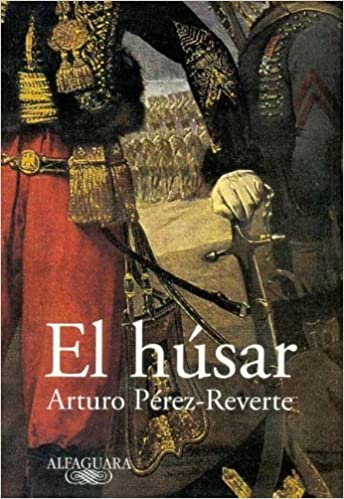
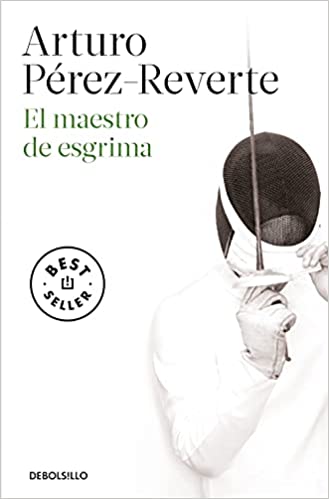
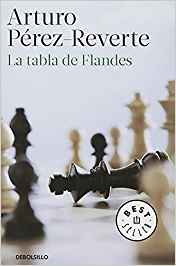
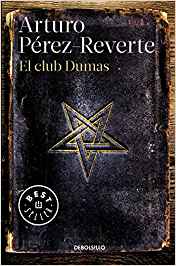
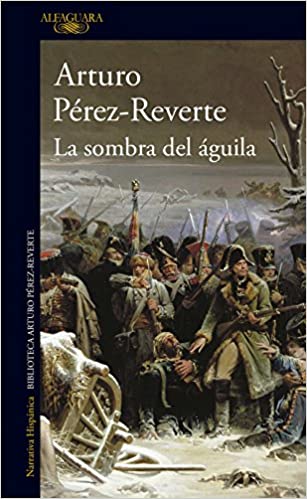

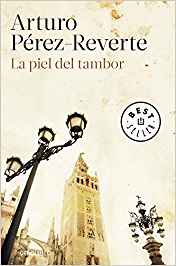
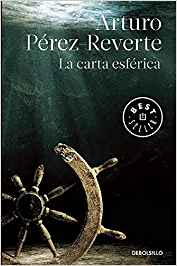
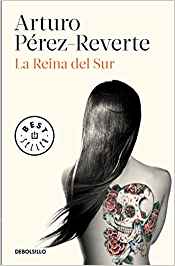
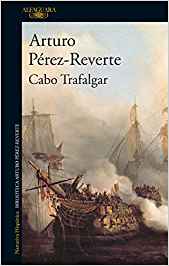
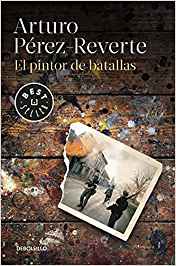
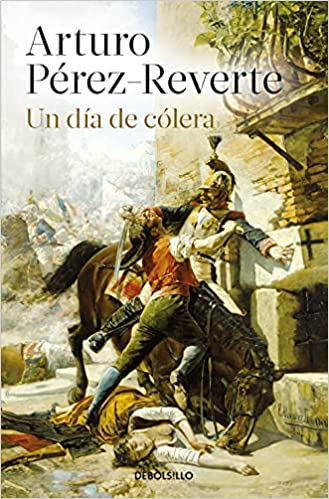
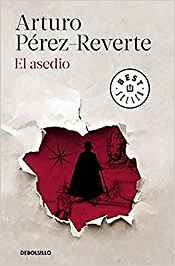
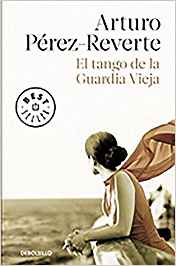
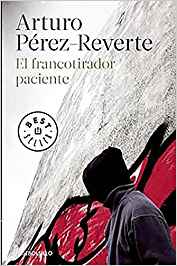
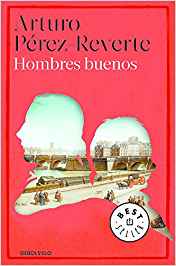
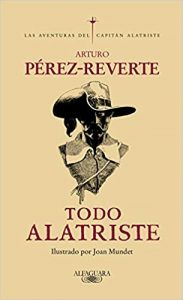

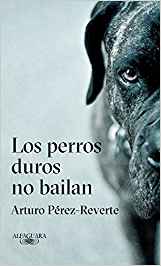
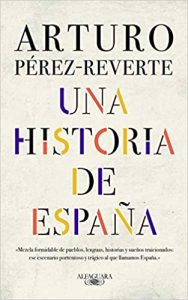


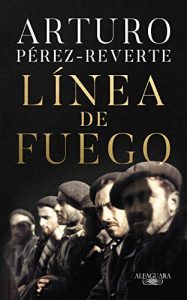
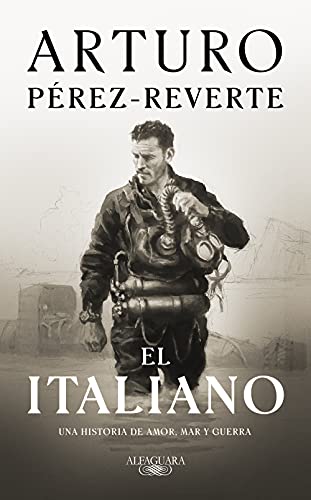
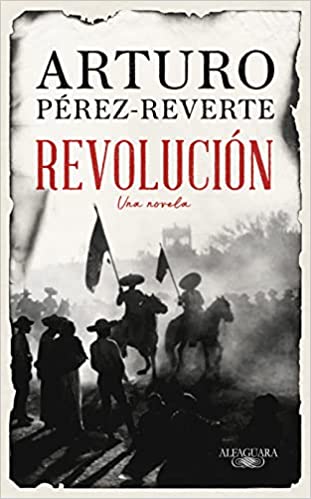
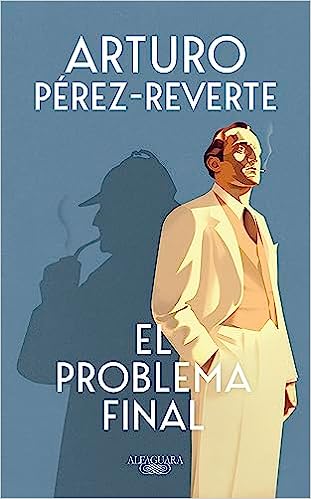
11 comments on "The best books of Arturo Pérez Reverte"